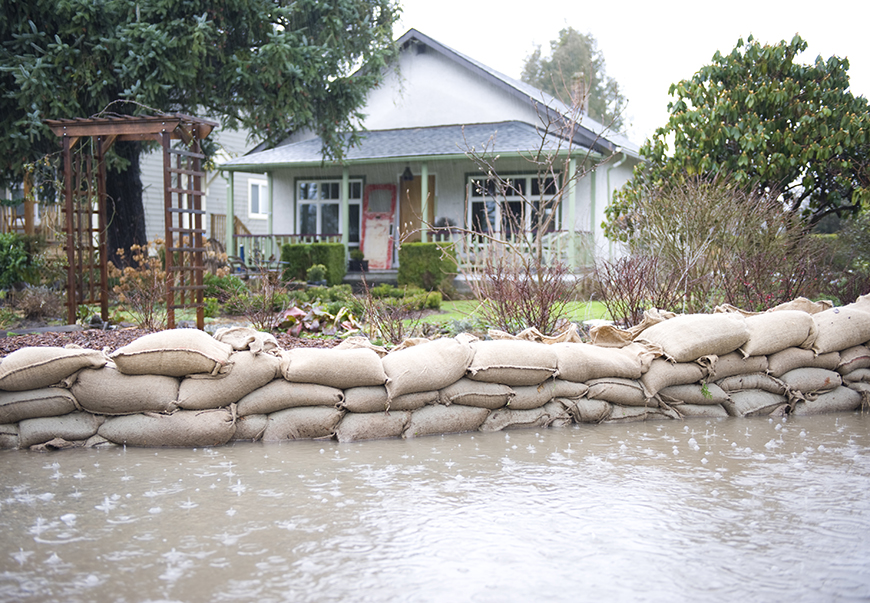
2019 Legislation Lowdown

The 86th Texas Legislature passed a number of bills that real estate professionals should be aware of. This article summarizes those. |
The 86th Texas Legislature convened earlier this year. Here’s a look at the results from a real estate law perspective. This list is by no means exhaustive. Laws likely to impact only certain localities have been omitted, as have most laws dealing with water planning, aquifer management, and the like. Numerous bills affecting special districts or changing how they operate have been excluded, as well as local and special laws. Nothing in this publication should be considered legal advice. Unless otherwise indicated, these bills are currently effective.
Property Taxation and Appraisal
SB 2, the Texas Property Tax Reform and Transparency Act of 2019, makes many changes, most of which take effect Jan. 1, 2020.
- The legislature attempted to slow the growing property tax burden by reducing the percentage increase in annual property tax revenue that requires voter approval. This rate, previously called the “rollback rate" and now called the “voter-approval tax rate," is now 3.5 percent for most taxing entities, down from 8 percent. For special taxing units, it remains at 8 percent. “Special taxing units" include junior college districts, hospital districts, and taxing units other than school districts with a current proposed maintenance and operations tax rate that is 2.5 cents or less per $100 of taxable value. (HB 3 made changes to property tax rates for school districts.)
- The prior law required a voter-initiated petition to call an election. The new law makes the election mandatory.
- Certain other provisions apply to cities with populations under 30,000.
- Appraisal review boards (ARBs) are now prohibited from raising the appraised value at most protests.
- Taxpayer-requested evidence must be delivered to the taxpayer at least 14 days prior to an ARB hearing, or it will not be admitted.
- Counties with a population of one million or more will have special ARB panels to hear protests on certain properties valued at more than $50 million.
- The act provides for estimated tax liability and other taxing information to be posted on the taxing unit’s website. Property owners will receive notice of the posting by mail or email each August.
Effective Jan. 1, 2020,
SB 2531 provides that a property owner and chief appraiser who agree to a disposition of a taxpayer protest may notify the appraisal review board and request an agreed order from the board. Tex. Tax Code § 41.47.
HB 1802 amends Tax Code Sections 41A.03 and 41A.05 to extend the deadlines for a property owner appealing an order of an appraisal review board. Tex. Tax Code §§ 41A.03, 41A.05.
Previously, if an error resulted in an incorrect appraised value, a property owner or chief appraiser could move the appraisal review board to change the appraisal roll if the error resulted in an incorrect appraised value that exceeded the correct appraised value by more than one-third.
HB 2159 allows for correction in the case of homestead property if the erroneous value exceeds the correct value by more than one-fourth (25 percent). The amendment also provides for a late-correction penalty. Tex. Tax Code § 25.25.
SB 443 deals with homestead property rendered uninhabitable by a casualty or by wind or water damage. The owner must begin active construction of a replacement qualified residential structure or other physical preparation of the site for such a structure to continue receiving a homestead property tax exemption on the property. The maximum period for the continued exemption is extended from two years to five years. The new law is found at Tex. Tax Code § 11.135.
SB 812 broadens the definition of “disaster recovery program" for purposes of the limitation on the appraised value of a homestead damaged by a federally declared natural disaster. The new law helps prevent homeowners from having rebuilt structures appraised as new improvements. The bill provides for the correction of the appraisal records for replacement structures built since Jan. 1, 2018, and applies to appraisals of residence homesteads for tax years beginning on or after Jan. 1, 2019. Tex. Tax Code § 23.23(g).
HB 3348 amends Sections 23.426 and 23.526 of the tax code so land that is temporarily quarantined for ticks by the Texas Animal Health Commission does not lose its agricultural or open-space appraisal status. Tex. Tax Code §§ 23.426, 23.526.
After a tax sale, an owner has a right of redemption for a period of time (two years or 180 days, depending on the type of property).
SB 1642 prohibits the transfer of a right of redemption to another person. Tex. Tax Code § 34.21(l).
Under
HB 1060, with respect to a scheduled taxpayer protest hearing, an appraisal review board must deliver notice of the hearing by certified mail or by email, as requested by the property owner. Tex. Tax Code §§ 41.46, 1.085.
HB 1409 provides that in determining whether timberland or restricted-use timberland qualifies for productivity appraisal, chief appraisers are now prohibited from considering portions of the land that are used for production of timber or forest products, including roads, rights-of-way, buffer areas, and firebreaks. Land that qualifies as timberland does not cease to qualify if a portion is being used for oil and gas production. Tex. Tax Code §§ 23.72, 23.765, 23.9802, 23.9808.
HB 1743 involves the other “rollback tax." On a change of use in land qualifying for open-space or timberland appraisal, the land is taxed in an amount equal to the difference in the taxes that would have been imposed over the last five years had the land been taxed on market value and the taxes under ag use. In addition, this tax also includes 7 percent annual interest. The new bill changes the rollback period to three years and changes the interest rate to 5 percent. Tex. Tax Code §§ 23.55, 23.76.
Under
HB 1883, for persons serving in the U.S. armed forces to qualify for deferred payment of property taxes, it is only necessary that the person be serving on active duty. The law no longer requires service during wartime or a declared emergency. If there is a delinquency, it accrues interest but does not incur a penalty. Tex. Tax Code §§ 31.02, 33.01.
SB 1943 defines “heir property" as real property owned by one or more individuals, at least one of whom claims the property as his residence homestead, and acquired by will, Transfer on Death Deed, or intestacy, regardless of whether the interests of the owners are recorded in the real property records. An heir property owner who qualifies heir property as the owner’s residence homestead is considered the sole recipient of homestead exemptions. The bill sets requirements for proof submitted with an application form for a residence homestead exemption when the owner is not specifically identified, including in the case of an heir property owner. This is a tax law and does not affect the actual legal title to the property. Tex. Tax Code §§ 1.04, 5.061, 11.13(h), 11.26(p), 11.261(n), 11.41(c), 11.43, 11.49, 33.06, 33.065.
If a taxing unit purchases property at a tax sale and later resells the property, Section 34.05 requires the sale be conducted in accordance with the Texas Rules of Civil Procedure. However, Section 34.01 allows a county commissioners court to direct resale by public auction using online bidding and promulgate rules for the sale. With passage of
HB 1652, the law now requires that if the county commissioners court directs resale by online bidding, the resale must be conducted by the commissioners court rules rather than the Texas Rules of Civil Procedure. Tex. Tax Code § 34.05(d).
HB 956 adds Tex. Local Gov’t Code § 387.013, which sets forth a mechanism for dissolving county assistance districts.
HB 1313 amends Section 11.26 of the Tax Code so that a surviving spouse of a person who is 65 or older or disabled may retain that exemption after the death of the qualifying spouse, so long as the surviving spouse is 55 or older, is occupying the homestead, and continues to do so. It also amends Section 23.01(e) of the Tax Code to raise the evidentiary standard for increasing a property’s appraised value in the year following a tax year in which the appraised value is lowered because of certain protests or appeals. Additionally, it amends Tax Code Section 41.41 to prohibit an appraisal district from requiring a fee in connection with a protest. This law goes into effect Jan. 1, 2020.
HB 1885 amends Tax Code Section 33.011 to allow a taxing unit to waive penalties and interest on delinquent property taxes if the failure to pay was the fault of the mortgage lender. Certain conditions must be met. This law goes into effect Jan. 1, 2020.
HB 2441 amends Tax Code Section 11.13 to allow a disabled person over 65 to receive a disability exemption and an over-65 exemption on a homestead, provided the exemptions are for taxes levied by different taxing units. This law goes into effect Jan. 1, 2020.
SB 2060 amends Tax Code Section 25.19 to require that a notice of appraised value sent to a property owner include explanations of total or partial exemptions available to individuals who are 65 or older or disabled, and their surviving spouses; and to disabled veterans, veterans killed in action, or first responders killed or fatally injured in the line of duty, and their surviving spouses. This law goes into effect Jan. 1, 2020.
HB 492 provides temporary exemption from property taxation for a portion of the appraised value of certain qualified property damaged by disaster. Tex. Tax Code §§ 11.35, 11.42(e), 11.43, 11.45, 23.02, 26.012, 41.03(a), 41.41(c), 41.44(a); Tex. Gov’t Code § 403.302(d). This law takes effect Jan. 1, 2020.
HB 1254 repeals the prohibition on agricultural use designation for land securing a home equity loan. Tex. Tax Code § 23.42. This law takes effect Jan. 1, 2020.
Landlord/Tenant
Section 92.016 of the Property Code sets out a tenant’s right to vacate, terminate a lease, and avoid liability for future rent following the occurrence of family violence.
SB 234 expands the acceptable documentation that must be furnished by the tenant. Tex. Prop. Code § 92.016.
Under current law, a residential landlord may not charge a fee for late rent unless (1) the fee is provided for in a written lease, (2) the fee is a reasonable estimate of uncertain damages resulting from late payment, and (3) the rent has remained unpaid one full day after the date it was originally due.
SB 1414 amends (2) to require that the fee be reasonable and (3) to two full days. The new law sets out standards for reasonableness. The landlord is also required to provide a written statement, on tenant request, of whether a late fee is owed and the amount of the late fee. Tex. Prop. Code §§ 92.019-92.0191.
HB 69 adds Section 92.0162 to the Property Code, allowing the representative of the estate of a deceased tenant (who was the sole occupant of the dwelling) to terminate a residential lease early (and avoid liability for future rent). To do this, the representative must (1) provide written notice of termination to the landlord, (2) vacate and remove all of the deceased tenant’s property from the leased premises in accordance with Section 92.014(c) or (d), and (3) if the landlord or landlord’s agent requires it, sign an inventory of the property removed. There are other provisions regarding notice and termination dates. This law applies to leases entered into on or after Jan. 1, 2020.
HB 1002 adds Section 92.0132 to the Property Code. The new law requires that a landlord who issues a parking permit to a tenant must issue the permit to expire at the same time as the lease, and may not terminate or suspend the permit until the tenant’s right of possession ends. This law applies to permits issued on or after Jan. 1, 2020.
Annexation
HB 347 amends the Local Government Code to prevent cities from annexing property without the consent of the owners. The 2017 annexation reform bill created a tiered system that prevented forced annexation only in heavily populated counties. The 2019 bill extended the protection from forced annexation statewide. Under the new law, there are three procedures for annexation by consent: (1) on request by each landowner, (2) an area with a population of less than 200 may petition for annexation, and (3) an area with a population of 200 or more by election of voters and, if required, petition by landowners. Certain other “consent-exempt" annexations remain in which consent is not required (e.g., municipal airports or reservoirs, industrial districts, area owned by municipality, highways such as roads and navigable streams). The new provisions are primarily found in Chapter 43 of the Local Government Code.
SB 1024 requires a Tier 1 municipality with a population of 350,000 or less that annexes an area under a municipal annexation plan to provide access to service under a service plan identical or substantially similar to those services in the municipality. In addition, it authorizes a person in the annexed area to pursue several remedies by writ of mandamus. Tex. Local Gov’t Code § 43.0565.
SB 1303 requires a Tier 1 municipality pursuing a municipal annexation plan to give certain notice to each property owner, create and make publicly available a digital map identifying the area proposed for annexation and any increases in extraterritorial jurisdiction, and publish certain notice of annexation hearings. Tex. Local Gov’t Code §§ 41.001, 43.052, 43.0561, 43.063, 43.0635.
Liability
HB 687 and
SB 230 amend Section 75.001 of the Civil Practice and Remedies Code to include rock climbing as a recreational use under the recreational use statute, which limits a landowner’s liability for personal injuries sustained during recreational use of the land.
Transactions
Stop using those old seller’s disclosures! HB 3815 and SB 339 amend the required seller’s disclosure given by a seller of residential real property to a purchaser. The new disclosure, required by amended Tex. Prop. Code § 5.008, includes notice of whether the seller is aware of:
- flood insurance coverage,
- previous flooding
- due to failure or breach of a reservoir, or
- a controlled or emergency release of water from a reservoir,
- previous water penetration due to a natural flood event, or
- location in floodplain,
or the seller has ever, with respect to the property,
- filed a flood claim with an insurer, or
- received assistance from FEMA or the U.S. SBA for flood damage.
SB 2128 allows county clerks to record in the real property records a paper or tangible copy of an electronic record that is otherwise eligible to be recorded, and sets forth requirements for doing so. The index entry for such a document must contain the names of the grantors and grantees. Tex. Local Gov’t Code § 193.003(b), Tex. Prop. Code §§ 12.0011(b), 12.0013.
Hemp
HB 1325 amends and adds numerous statutes, mostly in the Agriculture Code and the Health and Safety Code, in providing for the regulation of hemp as a crop in Texas. Regulatory power is vested in the Texas Department of Agriculture, and local regulation is prohibited. Hemp growers must be licensed, and operations are subject to inspection. Hemp must be tested to ensure it does not have impermissible levels of THC, the compound in marijuana that produces euphoria and/or psychotropic effects. Numerous questions remain about how hemp is to be regulated and its effect on agriculture and land use in Texas. Stay tuned.
Flood and Disaster
The Legislature passed numerous laws related to flood and disaster management. They are too numerous to include here.
Among other flood-related matters,
HB 26 requires notice to the public when a release of flood waters from a dam may contribute to flooding that may result in damage to life and property. Tex. Water Code § 12.052. HB 137 amends the same code section to require that the TCEQ report to certain local officials after a dam is designated as a high or significant hazard classification.
Firearms on Real Property
After the passage of
HB 302, with respect to applicable residential rental properties (including applicable condominiums), owners, landlords, tenants, and their guests may not be prohibited from the otherwise lawful possession, carrying, transporting, or storing of firearms, firearm parts, or ammunition on the leased premises, in a vehicle in a parking area, or in other areas necessary to enter or exit the leased premises or vehicle. The act also provides related defenses to prosecution for criminal trespass, including trespass by a handgun license holder. Tex. Penal Code § 30.05-30.07; Tex. Prop. Code §§ 82.121; 92.026; 94.257.
HB 1143 prohibits a public school district or open-enrollment charter school from regulating how a handgun license holder stores a handgun or other firearm or ammunition in a locked, privately owned or leased motor vehicle in a school parking area, provided they are not in plain view. Tex. Educ. Code § 37.0815(a).
SB 741 prohibits property owners’ associations from including or enforcing restrictive covenants that prohibit or restrict the lawful possession, transport, or storage of a firearm, firearm parts, ammunition, or the otherwise lawful discharge of a firearm. Tex. Prop. Code § 202.020.
SB 772 addresses the exercise of the option of a business to post signs forbidding the carrying of handguns by license holders on the property. If a business owner does not forbid handguns, that fact may not be used as evidence against the person who owns, controls, or manages the property. Tex. Civ. Prac. & Rem. Code § 95A.0001.
HB 2164 provides that an establishment that serves the public but prohibits or otherwise restricts a peace officer or special investigator from lawfully carrying a weapon on the premises is now subject to a civil penalty of $1,000 for each violation. The attorney general is authorized to sue to collect the penalty. Tex. Code of Crim. P. § 2.1305.
HB 1177 amends Tex. Penal Code § 46.02 to provide certain exceptions from normal rules concerning carrying of weapons. The exceptions apply during states of disaster and at certain locations being used as emergency shelters.
Trusts and Estate Planning
Among other things,
HB 2245 provides that the terms of a trust may not limit a court’s power to order the disgorgement of a trustee’s compensation in the event of a breach of trust, nor may they limit the court’s power to award costs and attorney fees. The provisions of the Texas Estates Code governing abatement of bequests in a will also apply to the abatement of transfers that take effect at death by the terms of a trust. Likewise, Estate Code provisions concerning the construction and interpretation of wills apply similarly to at-death transfers in trusts. Under those rules, the settlor is treated as a testator, the at-death transfers as devises, and the beneficiaries as devisees. Tex. Prop. Code §§ 111.0035, 112.0335, 112.054, 112.0715, 112.101-112.106, 142.005, 142.010, 143.001-143.007.
HB 2782 contains numerous provisions, most of which amend laws concerning decedents’ estates and probate administration. Of primary interest in the real estate context, the bill amends Section 114.102 of the Estates Code to provide that a memorandum of conveyance recorded prior to the transferor’s death is sufficient to revoke a transfer on death deed. An actual recorded conveyance is not required. The bill also repeals the statutory forms for the transfer on death deed. Tex. Est. Code §§ 114.151-114.152. SB 874 requires the Texas Supreme Court to promulgate new forms for the creation and revocation of a transfer on death deed, among other forms for use in simple estate planning. Tex. Gov’t Code § 22.020.
Oil and Gas
HB 3226 amends Section 102.082, Natural Resources Code, to provide for automatic dissolution of an oil or gas pooled unit two years (previously one year) after its effective date if no production or drilling operations have been had on the unit or surface location for the unit.
Certain instruments presented to mineral or royalty owners by buyers of those interests may purport to be oil, gas, or mineral leases when in fact they are conveyances of the owners’ mineral or royalty interests. Under
HB 3838, the instruments are required to have a conspicuous statement at the top of each page in 14-point type warning the owner that the instrument is not in fact a lease, but the owner is selling mineral or royalty interests. For the required language, see the new statute. Tex. Prop. Code § 5.152.
Wind Energy
HB 2845 adds Title VI to the Utilities Code. The new title provides for certain required provisions in wind power facility agreements, including requirements that the grantee must meet in removing the wind power facilities from the property and restoring the property on termination. Grantees must provide financial assurances covering the removal. The new law applies only to wind power facility agreements entered into on or after Sept. 1, 2019. Tex. Util. Code §§ 301.0001-301.0004.
Business Entities
Under
HB 1159, acknowledgement of a written instrument on behalf of a partnership may now be made by an authorized officer or agent. Previously, acknowledgements could be made only by a partner or partners acting for the partnership. Acknowledgement on behalf of a limited liability company may be made by a member, manager, authorized officer, or agent. Tex. Civ. Prac. & Rem. Code §§ 121.006(b), 121.008(b).
HB 1833 allows certain business entities to assign the authority to sell real property by recording an Affidavit of Authority to Transfer in the real property records. The affidavit must comply with all statutory provisions. The new provision applies for transactions up to and including, but not more than, $1 million. Tex. Prop. Code § 12.019.
Under the Penal Code, criminal liability may be imposed on corporations and associations for certain offenses.
SB 1258 amends the code to extend this liability to LLCs and other business entities governed by the Business Organizations Code. Tex. Penal Code §§ 1.07, 7.21-7.24, 12.51, 20.01.
Insurance
Under
HB 2102, a person insured under a property insurance policy is required to pay any deductible applicable to a first-party claim made under the policy. An insurer is authorized to refuse to pay certain claims until the insurer receives reasonable proof of such payment. A contractor may not pay, waive, absorb, or otherwise decline to charge or collect the deductible, nor may the contractor advertise or promise to do so. A contractor who violates this provision commits a Class B misdemeanor. A contractor must give a statutorily prescribed notice of these requirements in 12-point boldfaced type. Tex. Ins. Code §§ 707.001-707.005; Tex. Bus. & Comm. Code § 27.02.
After the passage of HB 2103, contractors may not act as public insurance adjusters or advertise to adjust claims for any property for which the contractor is providing or may provide services. The prohibition previously applied only to roofing contractors but now applies to all contractors. Tex. Ins. Code § 4102.163.
The Texas Insurance Code prohibits cancellation and nonrenewal of certain liability insurance policies.
SB 590 extends such protection to commercial property insurance. The bill clarifies that a change to the policy on renewal is not a nonrenewal or cancellation, provided the insurer provides written notice of the change in compliance with new Section 551.056. Tex. Ins. Code §§ 551.051-551.055, 551.056.
Of Interest to Landowners, Builders, Developers
Health & Safety Code § 711.010 provides that, on petition of a property owner, district courts may order the removal of human remains from abandoned, unknown, or unverified cemeteries if the court finds it in the public interest. Section 711.010 requires the removal to a perpetual-care cemetery or a municipal or county cemetery.
HB 2430 amends the code to allow removal to any other place on the owner’s property that the court finds is in the public interest. The bill also removes the authorization for the Texas Historical Commission or a county historical commission to intervene and become a party in such a suit but instead authorizes the court to consult with them in making a decision.
SB 1928 strengthens the requirements of a certificate of merit in cases where a claimant brings an action or arbitration proceeding for damages arising out of the provision of professional services by a licensed architect, licensed professional engineer, registered professional land surveyor, or registered landscape architect. Tex. Civ. Prac. & Rem. Code §§ 150.001-150.002.
HB 1973 changes the scoring requirements for an application for a low-income housing tax credit to address the method of scoring if the state representative does not provide a written statement as otherwise provided. Tex. Gov’t Code § 2306.6710.
HB 2053 limits liability for property damage, personal injury, or death caused by or resulting from certain prescribed burns, provided requirements are met. Tex. Local Gov’t Code § 352.081; Tex. Nat. Res. Code §§ 153.004, 153.046-153.047, 153.081-153.083.
HB 2439 prohibits governmental entities from adopting rules, charter provisions, ordinances, orders, building codes, or regulations that restrict the use of building products or materials approved by certain national model codes. The bill further prohibits governmental entities from imposing more stringent standards than the applicable codes for building products, materials, or aesthetic methods in construction or alteration of buildings. Tex. Gov’t Code §§ 3000.001-3000.005.
HB 2497 amends Section 211.010 of the Local Government Code to specify who may appeal to a municipal board of adjustment and to set deadlines for the appeals. Tex. Local Gov’t Code §§ 211.008, 211.010.
SB 1510 expands requirements for apportionment of infrastructure costs in amounts roughly proportionate to proposed developments, extending such requirements to counties as well as municipalities. Tex. Local Gov’t Code § 212.904, 232.110.
HB 3143 extends the expiration of the Property Redevelopment and Tax Abatement Act to 2019. The Act, codified as Chapter 312, Texas Tax Code, exempts all or part of the increase in value of property for a period of time. The act provides governmental entities with tools to attract certain businesses. In addition to extending the expiration of the act, additional requirements were added with respect to notice, public hearings, and reporting.
HB 3167 revises the municipal and county approval procedures for land development applications. The new provisions are found in Tex. Local Gov’t Code §§ 212.001, 212.0085, 212.009-212.0099, 212.014-212.015, 232.0023, 232.0025-232.0029.
HB 3314 makes changes to the laws regarding replatting of municipal subdivisions without vacating the preceding plat. The new act also sets forth hearing and notice requirements. Tex. Local Gov’t Code § 212.014.
Effective Jan. 1, 2020,
SB 943 amends the open government provisions of the Texas Government Code to make information on certain government contracts public information subject to disclosure. If the information is maintained by the contracted entity and not maintained by the government, the contracted entity must comply with a proper request or be subject to contractual termination.
Lemonade
Lemonade lovers rejoice! After passage of
HB 234, occasional sale of lemonade or other nonalcoholic beverages by children from a stand on private property or in a public park is now legal, notwithstanding any local ordinance, order, or rule. Property owners’ associations also may not adopt or enforce restrictive covenants prohibiting lemonade stands. Sales of alcohol by children are still illegal. Tex. Local Gov’t Code § 250.009; Tex. Prop. Code § 202.020.
____________________
Adams ([email protected]) is a member of the State Bar of Texas and a research attorney for the Real Estate Center at Texas A&M University.
You might also like

Publications
Receive our economic and housing reports and newsletters for free.






